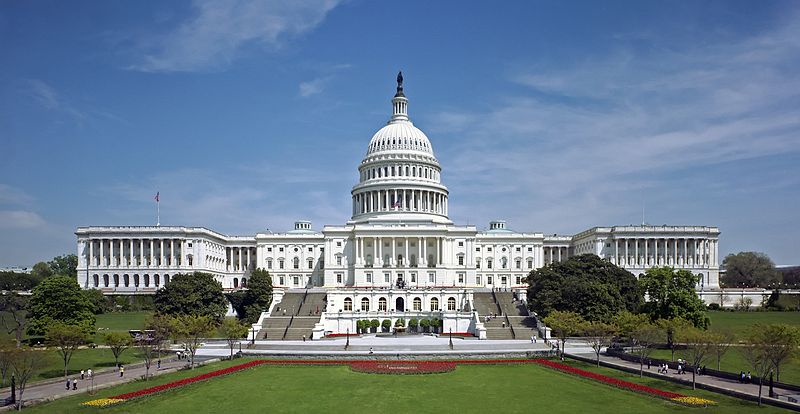
The Nuke Review
Sunday, March 4th
President Obama addressed the American Israeli Public Affairs Committee’s annual Washington conference. President Obama spoke about his policy of prevention, “I reserve all options, and my policy here is not going to be one of containment. My policy is prevention of Iran obtaining nuclear weapons,” and declared that, “all elements of American power” would be used to prevent an Iranian nuclear weapon. However, the President also urged Israel to give diplomacy the time it needed to work and refrain from aggressive rhetoric. “For the sake of Israel’s security, America’s security, and the peace and security of the world, now is not the time for bluster,” the President declared, “Now is the time to let our increased pressure sink in, and to sustain the broad international coalition that we have built.”
In his closing speech on the 4th, the executive director of AIPAC Howard Kohr, described how it is not important that Iran actually has a bomb, but has the capability to quickly produce one. “It is not necessary for Iran to actually have the bomb – to demonstrate beyond doubt that they have crossed the nuclear threshold. Iran with simply the capacity to quickly produce a weapon – is a risk to peace, and a threat to the world. Iran, as a threshold nuclear state will strengthen our foes and frighten our friends…That is why all U.S. officials must speak with one voice – so Tehran clearly hears that America is unified in its determination to prevent a nuclear capable Iran.”
Monday, March 5th
Senator Mitch McConnell also addressed an AIPAC gathering, telling them, “If Iran at any time begins to enrich the uranium to weapons grade or decides to go forward with a weapons program, then the United States will use overwhelming force to end that program.”
The same day Senator Joseph Lieberman, addressed AIPAC saying, “regime must hear a message from us and we must state it loud and clear: Either you peacefully negotiate an end to your illicit nuclear activities, or they will be ended for you by military attack. It’s time for us to make an iron-clad pledge, which will be heard both by our friends and enemies in the Middle East and throughout the world, the United States will prevent Iran from acquiring a nuclear weapons capability by peaceful means if we can, but with military force if we absolutely must.”
Mitt Romney also waded into the Iranian waters on Monday with an Op-Ed in the Washington Post, declaring that, “The United States cannot afford to let Iran acquire nuclear weapons” and “most important, I will buttress my diplomacy with a military option that will persuade the ayatollahs to abandon their nuclear ambitions. Only when they understand that at the end of that road lies not nuclear weapons but ruin will there be a real chance for a peaceful resolution.”
Senator John Kerry spoke on the floor of the Senate to deliver a rebuttal to Mitt Romney, “When President Obama took office, Iran was ascendant. As the Vice President used to say when he chaired the Foreign Relations Committee, freedom wasn’t on the march – Iran was on the march… Today, all of these sanctions are beginning to bite. Iran is now virtually cut off from large parts of the international financial system… Iran is also divided internally and isolated diplomatically like never before.” Kerry also spoke of preventing Iran from obtaining a nuclear weapon, “Mr. President, let us be crystal clear: we must prevent Iran from acquiring a nuclear weapon. That is why President Obama, even as he builds pressure for a diplomatic solution, keeps reiterating that all options are on the table. And he’s underscored that – as he said – “I don’t bluff.”
Tuesday, March 6th
Secretary of Defense Leon Panetta addressed AIPAC saying, “we will back this diplomacy with strong and increasing pressure… We prefer a diplomatic path. As the Prime Minister himself has said – military action is the last alternative when all else fails. But make no mistake, when all else fails, we will act.”
The same day, CENTCOM Commander General James Mattis told the Senate Armed Services Committee that the United States has few options when it comes to the Iranian nuclear weapons program and that, “The best we can do is to delay them…Only the Iranian people can stop this program.”
Wednesday, March 7th
Senator Linsey Graham told Bloomberg that president Obama’s, “statement about containing a nuclear-armed Iran was good. There will be a lot of bipartisan support for that concept,” and that sanctions are more effective “if the Iranians believe military force could be a reality.”
Friday, March 9th
Senator Carl Levin discussed the possibility of an international naval blockade against Iran with an interview with C-SPAN on Friday saying, “That’s, I think, one option that needs to be considered… I think (these are) options that whoever is willing to participate should explore, including Israel and including the United States.”






[…] Gold: This Week In Washington […]